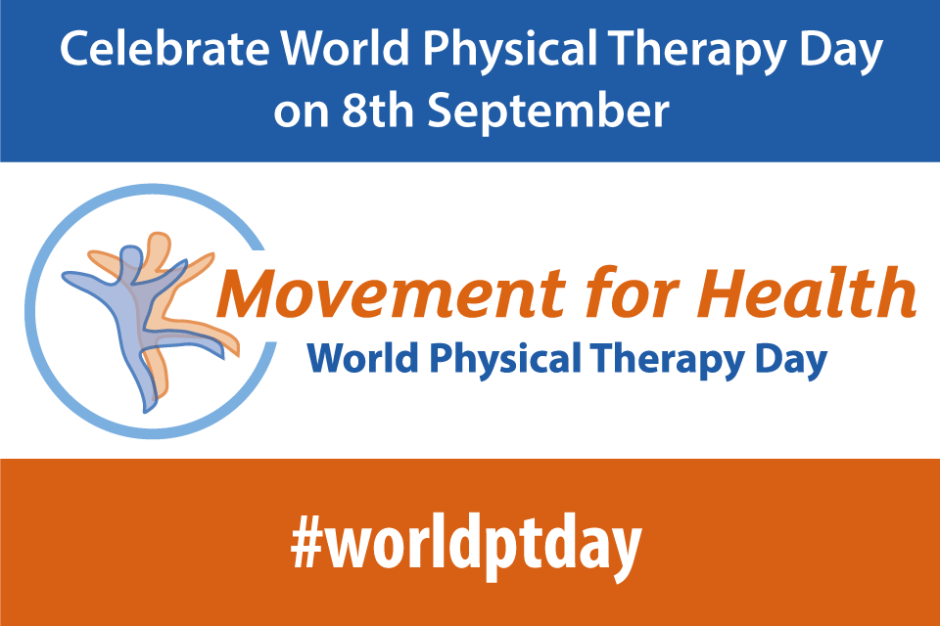The topic of this Physiotalk hosted by the Physiotherapy Pain Association will mirror the theme of World Physical Therapy Day on 8th September – the role that physiotherapy has in supporting people with chronic pain to take control of their condition, increase their activity and improve their quality of life.
It will be at the usual time of 8.30pm BST on Monday 2nd September.
World Physical Therapy Day is held every year and is a great opportunity to join together with other physiotherapists around the world to promote a shared message to the public. Have a look at the WCPT World Physical Therapy Day resources and follow #WorldPTDay to find out more!

Chronic pain can be a consequence of a wide range of musculoskeletal and other conditions including cancer, obesity, mental health conditions, neurological conditions and post surgery.
The benefits of using exercise to manage chronic pain are well known, but often patients in pain struggle to get more active due to a range of biopsychosocial factors. Chronic pain can have a significant impact on people’s mood, their life roles and their sense of self. Unfortunately, there is evidence to suggest that physiotherapists may not be confident at assessing psychosocial factors in people with low back pain It is also known that therapists’ own attitudes and beliefs can affect their clinical practice
Certainly, no matter what area of physiotherapy you work in, you will encounter patients with chronic pain. The majority of patients with chronic pain will have their symptoms addressed in primary care or other non-specialists and not in pain management services. This is despite the British Pain Society recommending multidisciplinary pain management programmes as the gold standard treatment of choice for persistent pain.
Questions to consider
- Are physiotherapists specialists in chronic pain?
- What skills should a physiotherapist have that supports people with chronic pain?
- How do your attitudes and beliefs about pain and disability affect your practice?
- How do you assess psychosocial factors in people with chronic pain?
- What does psychologically informed physiotherapy practice mean to you?
- How do physiotherapists develop assessment and management skills to enable people to live well with a chronic pain condition?
The chat hosts
The Physiotherapy Pain Association (PPA) @PhysioPainAssoc was formed to bring together and provide information for physiotherapists involved in the management of acute and long term pain. The PPA was established in 1994 and is celebrating 25 years this month. The PPA is committed to promoting the role of physiotherapy in the treatment and management of chronic pain. The PPA aims to support physiotherapists to develop the knowledge and skills to address the needs of those experiencing chronic pain.
Chat resources
Physiotherapy pain association
World PT day resources from WCPT
Measures mentioned on the chat
Transcript
Missed the chat? Catch up with the transcript instead.